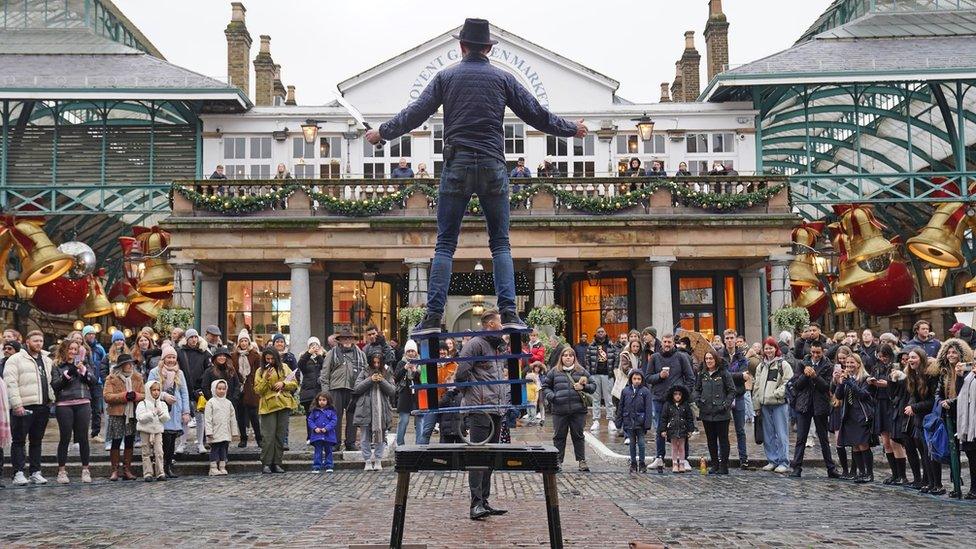Self-regulation marked by Covent Garden performers
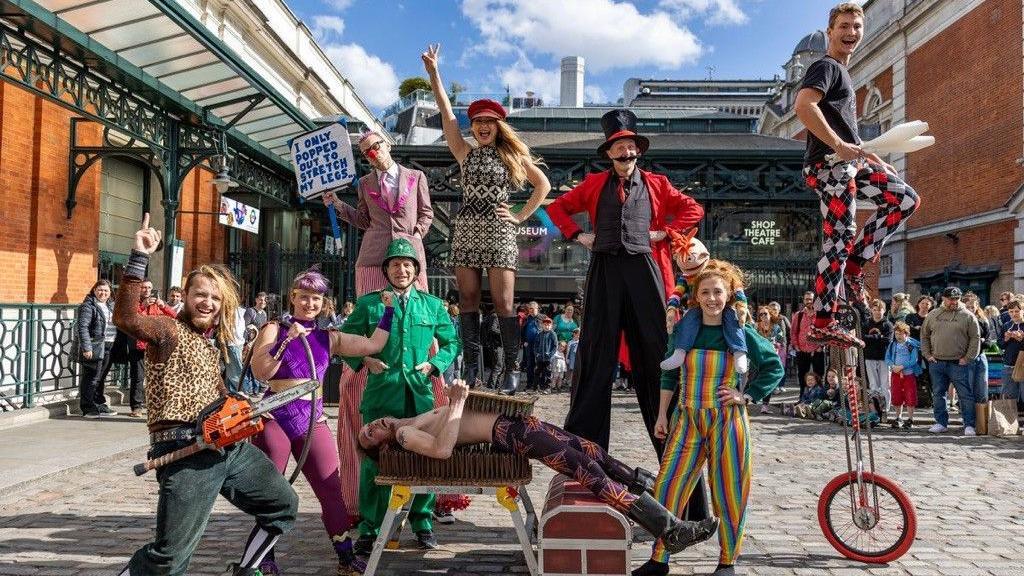
Performers at Covent Garden arrange their own time slots and resolve disputes as a community
- Published
Street artistes at London's Covent Garden are marking 50 years of performing in the piazza.
The location varies from the others in the city in that it has never required a licence or a permit to get a pitch.
Westminster City Council brought in a borough-wide scheme in 2021, but the Covent Garden Street Performers Association (CGSPA) decided not to be involved, instead relying on self-governance.
Aicha Less, from the council, said licencing ensured "fair treatment for all performers" and hoped to work with the CGSPA to develop guidance on regulation in the future.
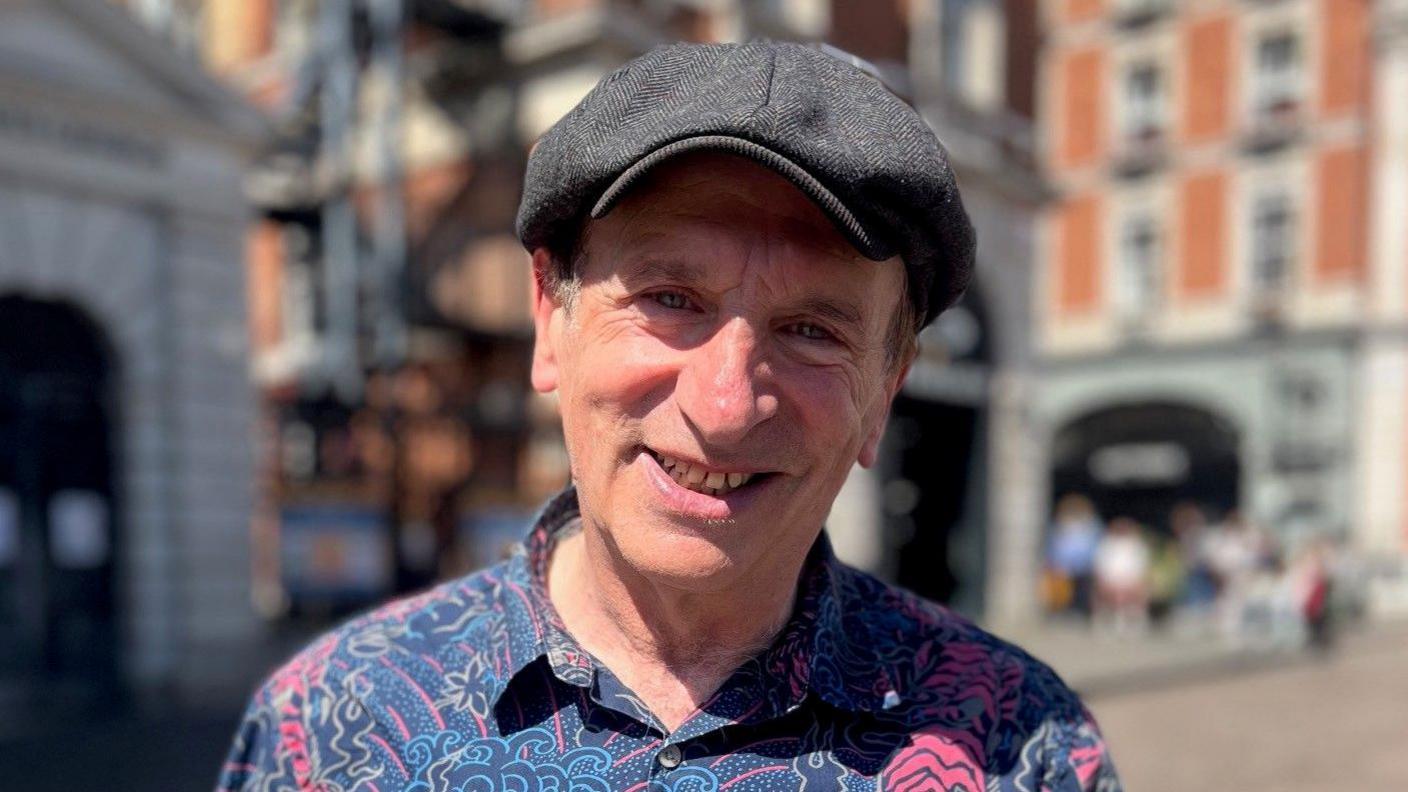
Melvyn Altwarg says Covent Garden was a success because performers organise it without external regulation
For 50 years, the performers have managed themselves without formal permits, programming teams, or external regulation.
Melvyn Altwarg, a CGSPA spokesperson, said the current system had worked well for decades.
"Covent Garden works because we built it.
"No one had to come in with a policy document – we figured it out on the cobblestones."
He added: "We developed our own system for rotating pitches, drawing lots for performance times, and resolving disputes collectively."
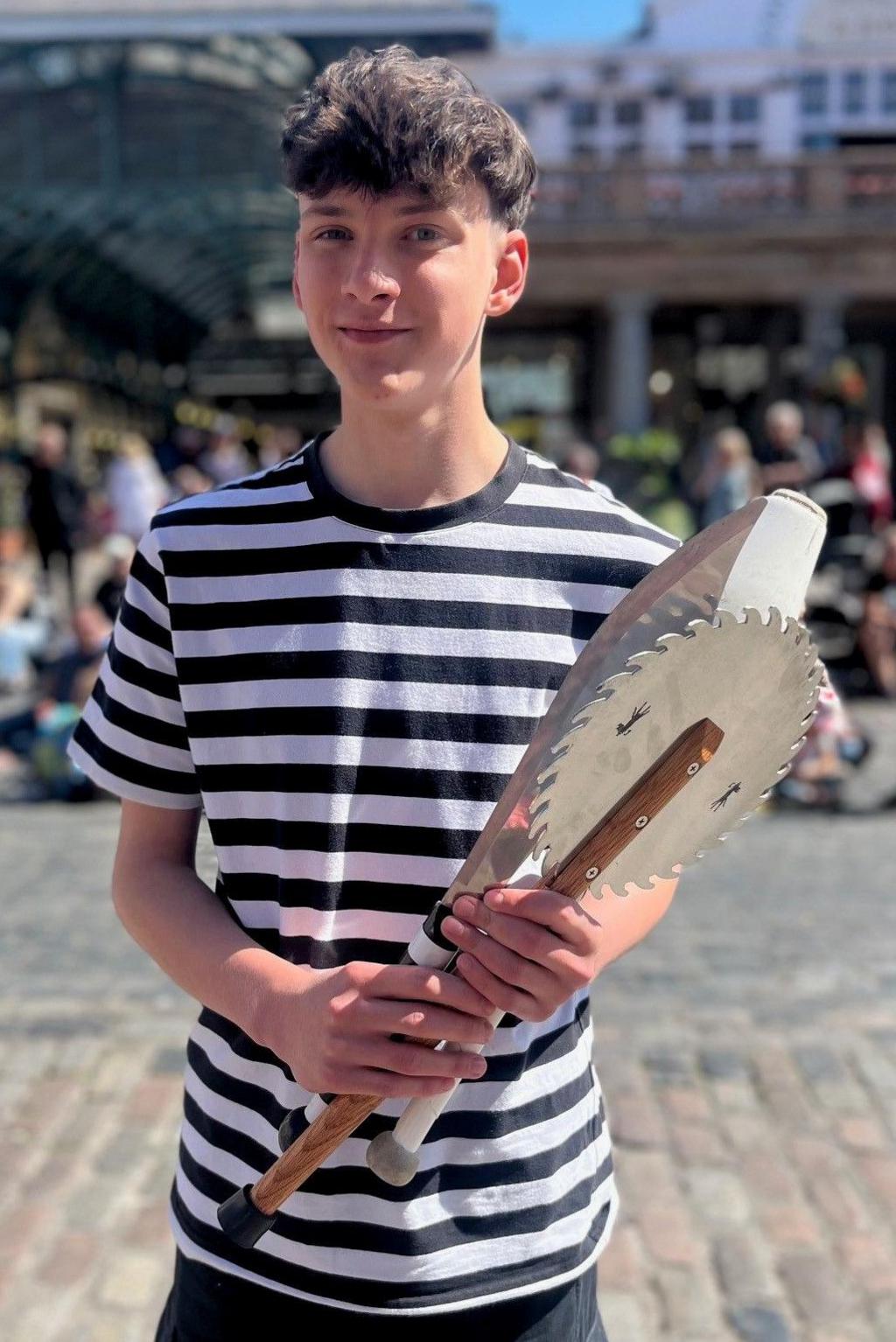
The next generation of performers includes Harvey Stinton, who has been juggling in the square since he was 14
Street performing in the square dates back to at least 1662, when Samuel Pepys wrote in his diary about a marionette show.
Modern-day artists to have cut their teeth in Covent Garden include Cirque Du Soleil, STOMP and Dynamo.
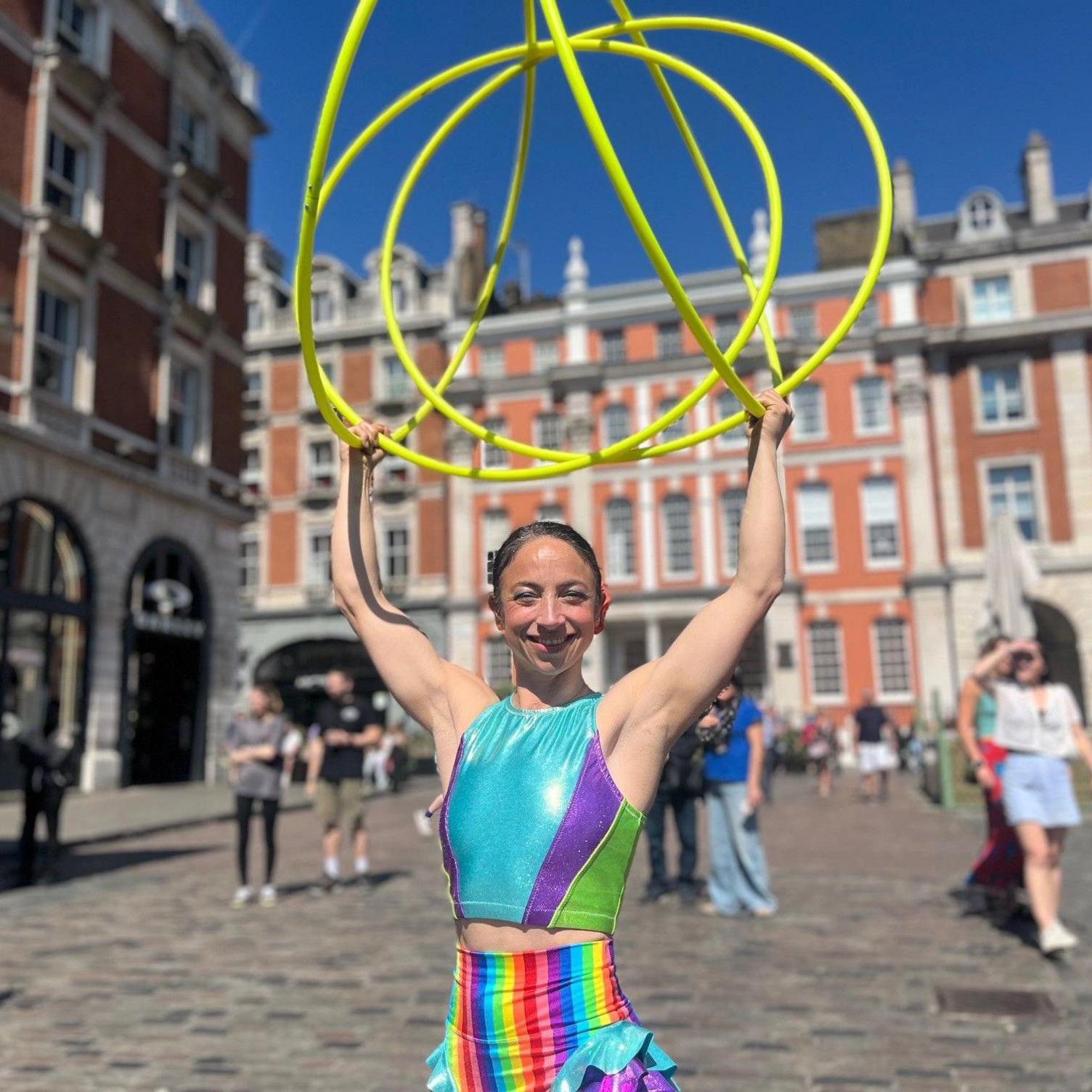
Circus-style acts are popular with the tourists
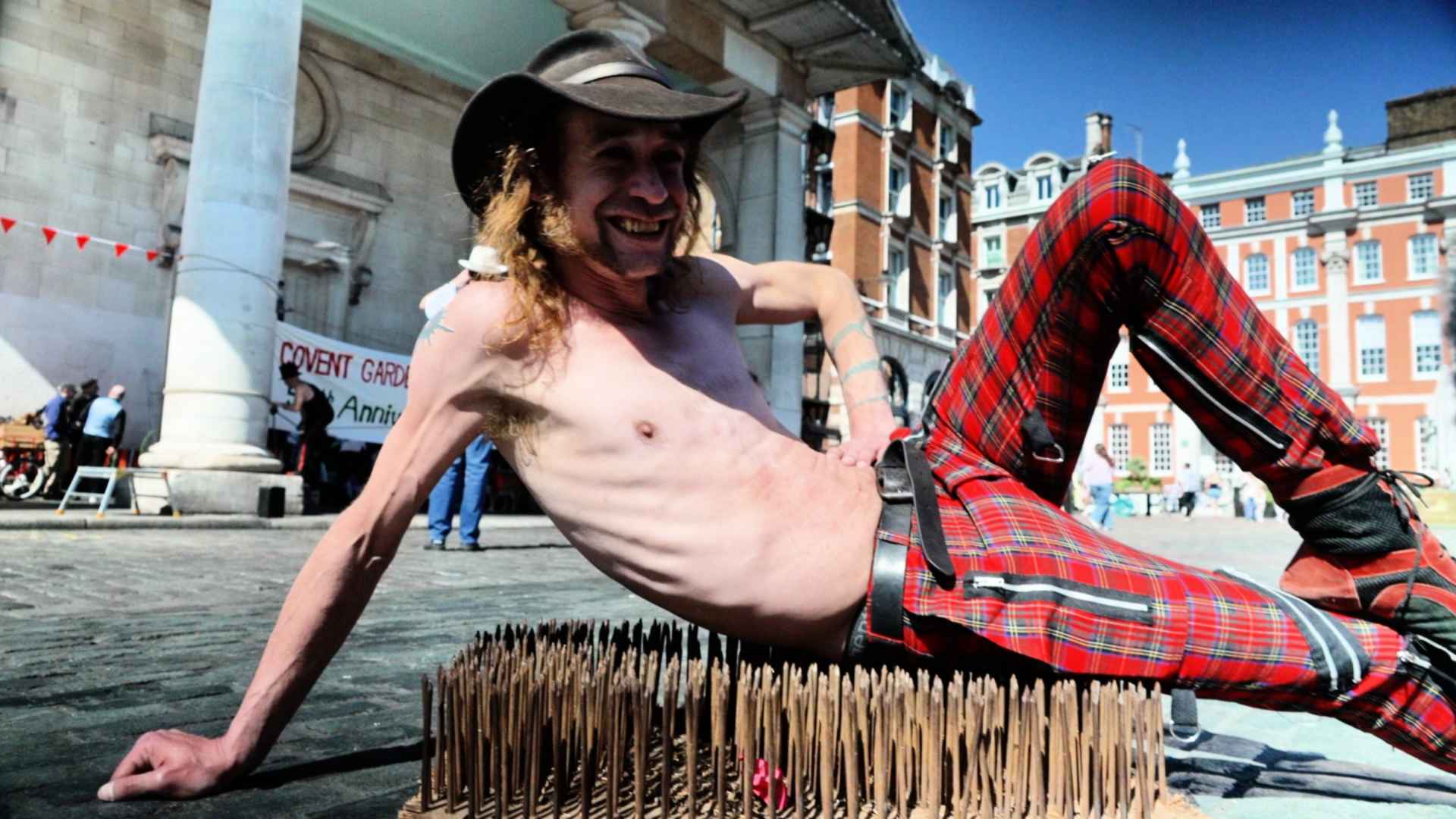
Always time for a nice rest on a giant hedgehog
The regulatory scheme brought in by Westminster City Council has largely been complied with in other areas.
Performers in Leicester Square were recently subject to a noise abatement notice categorising music played by buskers as a statutory nuisance and akin to "psychological torture".
Aicha Less, from the council, said it was very supportive of "the immensely talented street performers who bring joy to tourists and residents alike".
She said the aim of regulation was to "balance the needs of businesses and residents while ensuring street performers and buskers can continue to do what they do best.
"There are no informal agreements with any performer associations, and our licensing scheme aims to set a level playing field - ensuring fair treatment for all performers whilst allowing others to live and work without excessive crowding or noise."
Listen to the best of BBC Radio London on Sounds and follow BBC London on Facebook, external, X, external and Instagram, external. Send your story ideas to hello.bbclondon@bbc.co.uk, external
Related topics
- Published22 November 2023
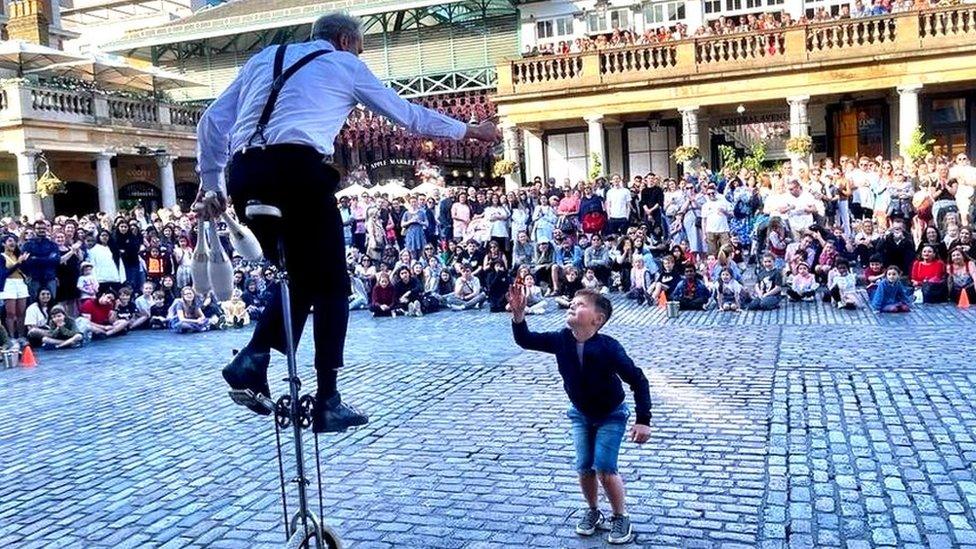
- Published6 February 2024
